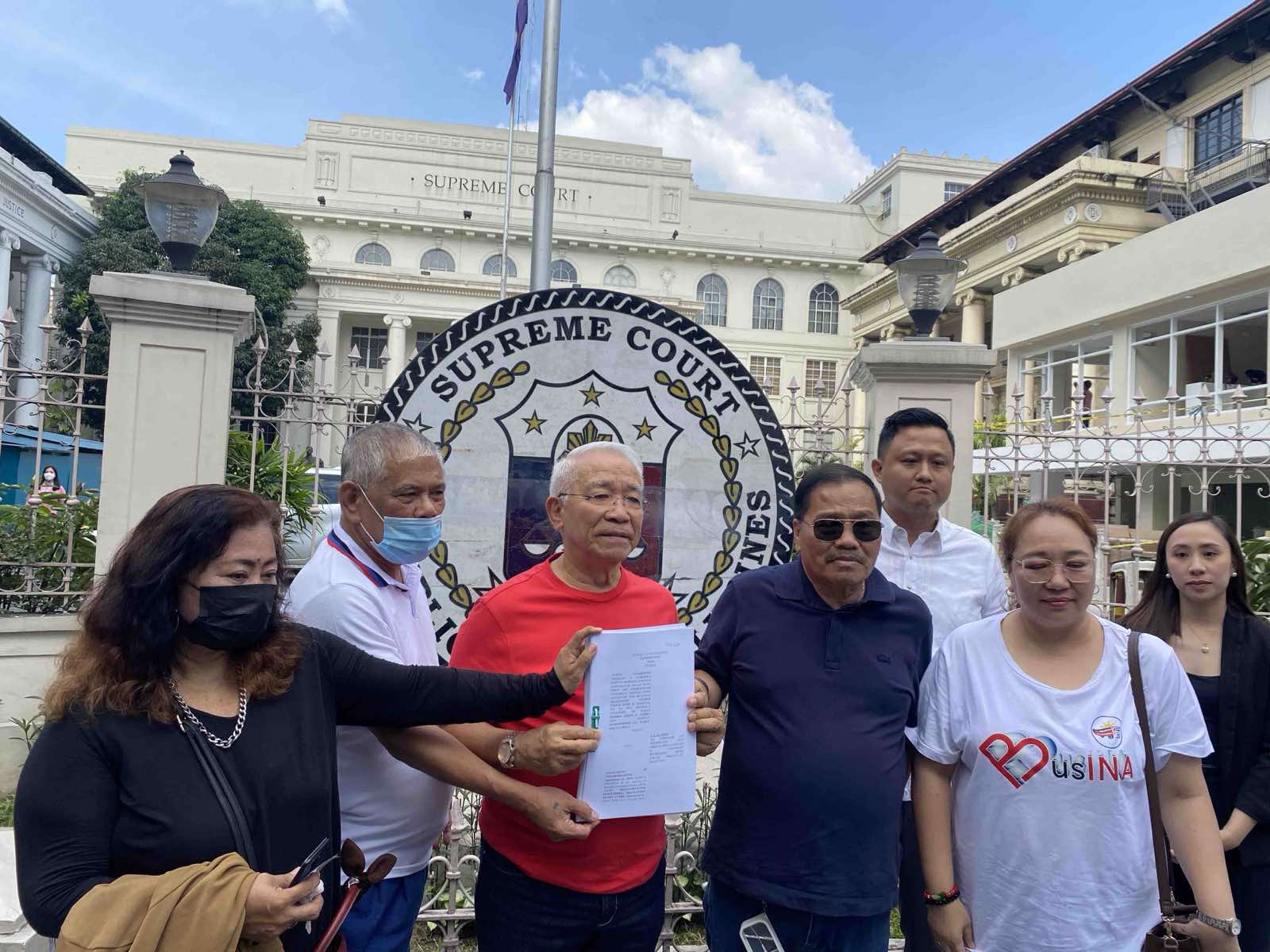58 transport groups ask SC to dismiss Piston's petition vs PUVMP implementation

Pasang Masda president Ka Obet Martin shows a copy of the Motion for Intervention that he and 57 other transport leaders across the country filed before the Supreme Court on Monday, Jan. 15, 2024, that seeks dismissal on the petittion filed by other Piston and other groups against the Public Utility Vehicle Modernixzation Program (PUVMP).
A total of 58 transport groups across the country filed on Monday, Jan. 15, a Motion for Intervention before the Supreme Court to seek the dismissal of the petition filed against the implementation of the Public Utility Vehicle Modernization Program (PUVMP).
In the 71-page motion, the leaders of various transport groups from various parts of the country argued that any ruling against the PUVMP implementation will adversely affect them since they have already complied with the requirements set by the national government, particularly the consolidation into a cooperative and the procurement of modern units.
The motion was filed by the transport groups led by Ka Obet Martin of Pasang Masda, Boy Vargas of ALTODAP (Alliance of Transport Operators and Drivers Association of the Philippines), Libay De Luna of ACTO (Alliance of Concerned Transport Organization), and Lando Marquez, Sr. of LTOP (Liga ng Transportasyon at Operators sa Pilipinas).
The case was filed in response to the petition filed by Piston (Pagkakaisa ng mga Samahan ng Tsuper at Operators Nationwide) before the High Court in December last year.
In arguing against the arguments raised by Piston, the groups emphasized the long term benefits of the PUV Modernization program in terms of health and environment and the livelihood of the operators and drivers.
In the petition, the groups said that while the traditional jeepneys have been part of the Philippine transportation system for eight decades now, it did not resolve the environment effects, the welfare of commuters in terms of comfortable and safe travel, and even the plight of ordinary drivers who have been long dependent on the boundary system set by the operators.
“The PUVMP does not only cover improved PUVs but also modernized operations – they will have facilities like garages, fleet management systems that include Automatic fare collection system (AFCS) and GPS, cash/finance management systems – all for the comfort and convenience of passengers, and for the improvement of labor standards for drivers, operators, and transport workers,” said Martin, one of the petitioners.
Martin said the PUVMP also pushes for a more environmentally-sound PUVs and added that one of the assailed issuances is assuring a reliable, safe, accessible, environmentally-friendly, dependable, efficient, and comfortable.
Martin is referring to the DOTr D.O. No. 2017-11 Omnibus Guidelines on the Planning and Identification of Public Road Transportation Services and Franchise Issuance or Omnibus Franchising Guidelines.
“Again, all these are for the public’s welfare,” said Martin.
In the petition, the groups said the current boundary system is not helping the drivers much in terms of improving their lives since they are tied to the conditions set by the owners of the units they are driving.
In a Malacanang press briefing, Office of Transportation Cooperative chairman Jesus Fernando Ortega said jeepney drivers will receive a fixed salary and will enjoy benefits of regular employees under the PUVMP since their inclusion to a cooperative would make them legitimate members.
“Worthy to note that, the problem that the PUV modernization seeks to address is not only with the use of old PUVs but ultimately with the operation of the PUVs, by removing and/or changing the old habits of the operators, “ said Marquez, for his part, citing a portion of the petition they filed.
“We are hoping that the Supreme Court will give our motion due course and consider our opposition to the Petition (filed by Manibela and Piston),” he added.